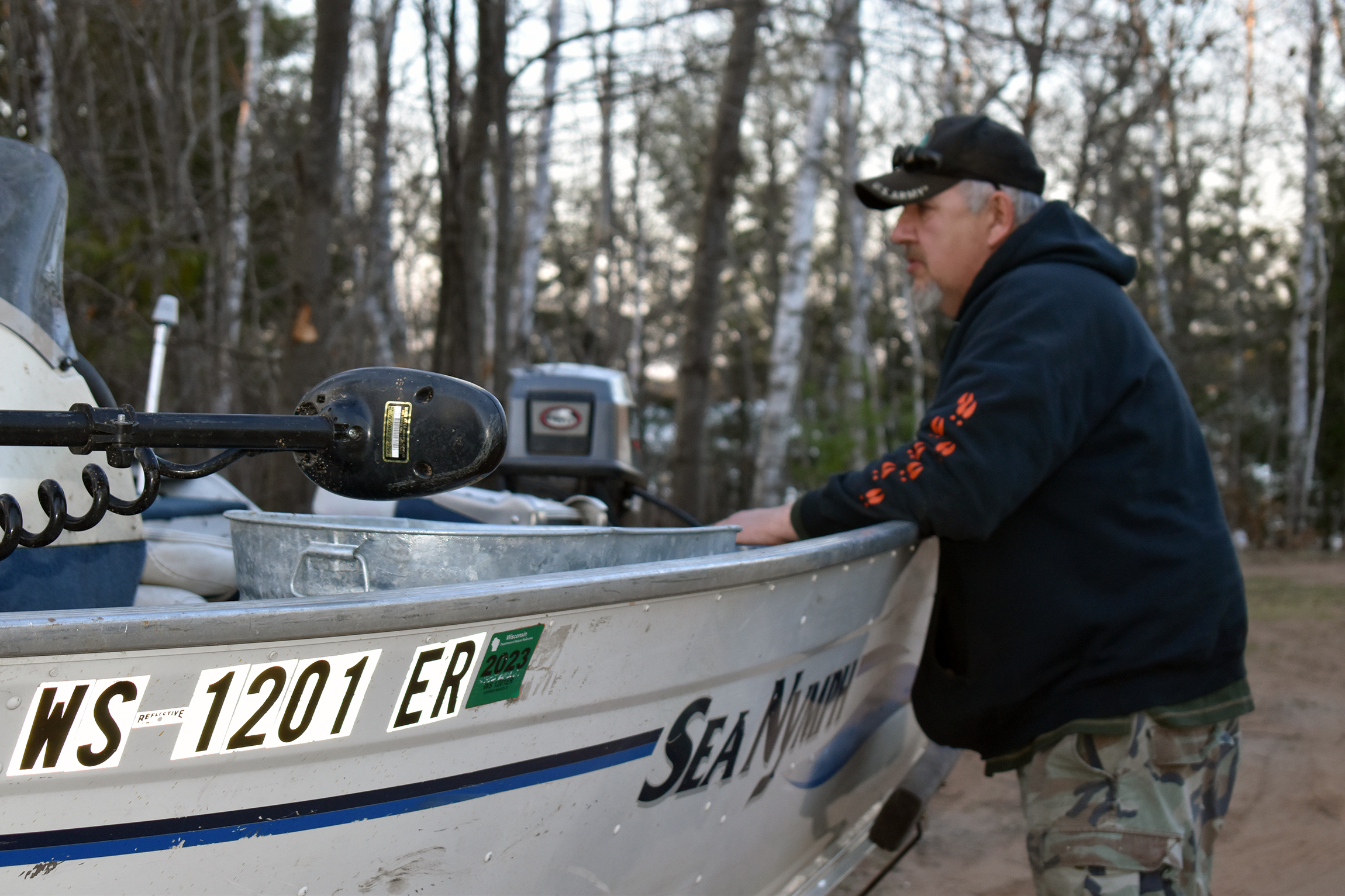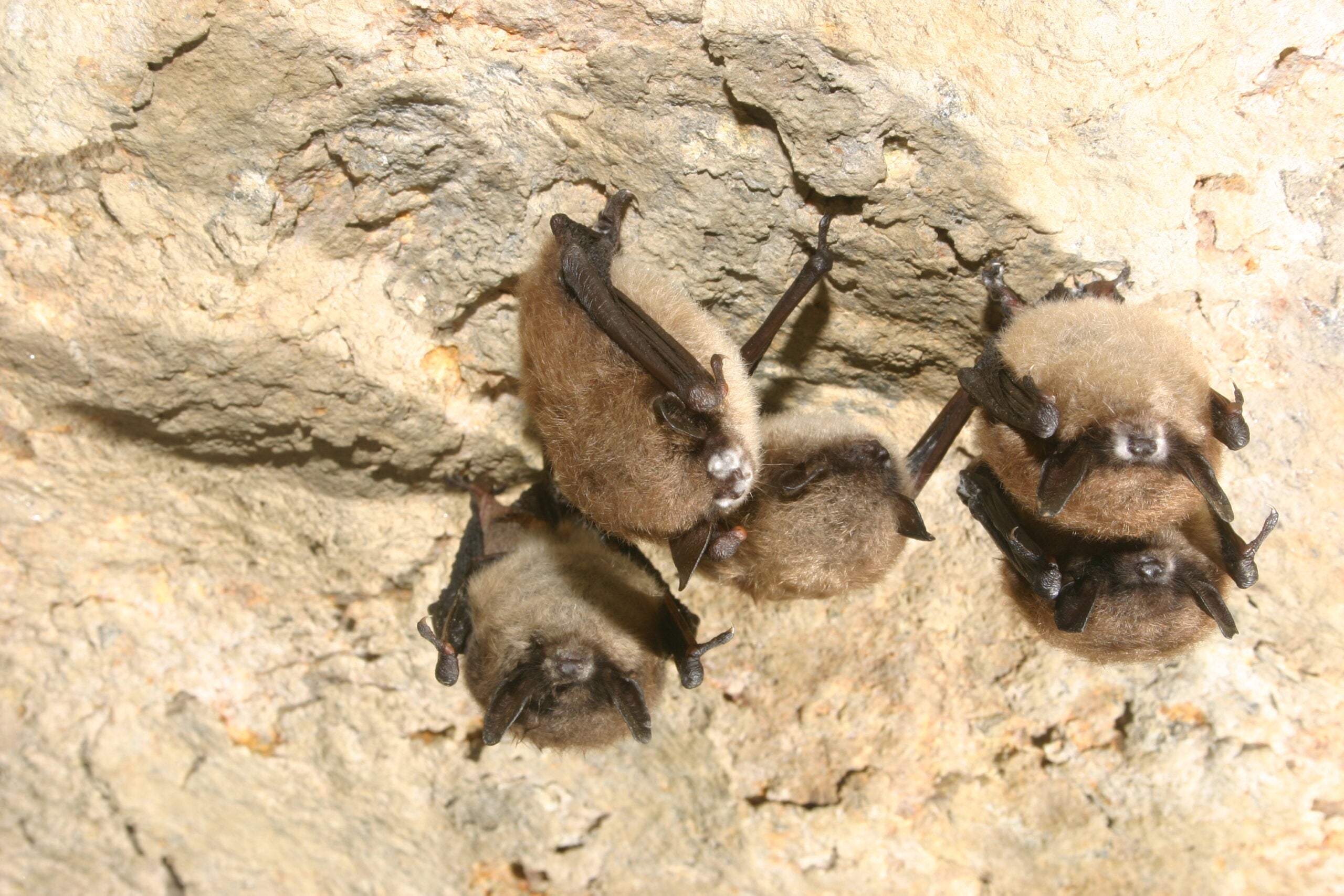Some conservationists say allowing hunting of wolves and bears leads to less poaching, but a state researcher says that might not be the case. Our guest explains his study on the relationship between legal hunting and poaching. We also hear from a professor about his decision to stay at UW-Madison amid tensions between university and government officials. The Associated Press reports that Donald Trump has clinched the Republican nomination delegate count, we’ll discuss what it means for the Party.
Featured in this Show
-
UW-Madison Professor Says School's Faculty Should Stay
Despite the budget cuts, weakened tenure protections and the general acrimony between state lawmakers and University of Wisconsin System staff, a UW-Madison professor is making the case for why faculty should stay at the school.
“It has been a challenging year, there’s not doubt about that,” said David Canon, professor and chair of the political science department at UW-Madison. “And chairs in every department in the university have faced challenges in trying to retain their faculty. But this is still a great public university, and it’s still a fantastic place to live.”
Canon said within his own department, 10 of the 35 professors were recruited by outside institutions, and two chose to leave UW-Madison. As of Thursday afternoon, Canon said 94 professors in total received offers from outside schools — more than double the number from the previous fiscal year. So far, 86 cases have been resolved, with 76 professors deciding to remain in Madison. That’s about an 88 percent retention rate.
“We hear a lot about the 12 percent who are leaving, but we haven’t heard the success story, which is we have had a strong year in retention given that the numbers are about triple in terms of the number of people who we had to try to retain this year,” Canon said.
Canon said he fears the university can’t afford for this kind of retention rate to continue.
“We really would have a tough time if we had another year or two like this with this level of retention activity because it is a very costly process to keep people that are being wooed by other university,” he said.
The professors who have announced that they’re leaving the university have cited the weakened tenure protections as their major reason for leaving. In March, the UW Board of Regents approved changes that allow for tenured faculty layoffs when academic programs are discontinued, and creates a standard policy for post-tenure job reviews across the system.
Last week, Caroline Levine, professor and chair of the English department, announced she was leaving the state to take a job elsewhere.
“The constant attacks on the university from the Legislature have really had a bad effect on morale,” she said.
Conor said he understands the frustration but that “Wisconsin went from having probably the strongest tenure protections in the country” down to a level largely comparable to peer institutions. He added that the recruitment efforts from outside schools demonstrate the quality of professors on campus. But he acknowledges there could be a better culture of cooperation.
“On the other hand, it certainly is troubling to not have better relations with the state Legislature and with the governor, and I think that is something the chancellor is keenly aware of and working on all the time,” he said.
-
UW-Madison Study Refutes Popular Wolf Conservation Strategy
A recent study by a University of Wisconsin-Madison professor is challenging the prevailing wisdom on wolf management.
The study examined wolf hunting in Wisconsin and Michigan over the last 20 years as related to the animal’s population numbers. Researchers found that the long-standing belief which argues that licensed hunting by federal or state officials — commonly referred to as culling — leads to less poaching might not be true.
In fact, the study’s results suggest the opposite: Culling appears to be associated with declining population rates among wolves and other large carnivores.
Adrian Treves, professor of environmental studies at UW-Madison and founder of the Carnivore Coexistence Lab, was one of the authors of the study, “Blood does not buy goodwill: allowing culling increases poaching of a large carnivore.” It examined wolf populations between the neighboring states from 1995 to 2012. Over that time period, both Wisconsin and Michigan enforced 12 different periods of regulations, half of which allowed culling. That allowed researchers to compare population trends.
“We discovered that wolf population growth had diminished by an average of 4 percent every time the state had authority to cull wolves,” Treves said.
The declines could be explained in one of three ways, said Treves. The wolves could have migrated. That option was quickly dismissed because there’s no way the wolves became aware of the policy changes coming from the state capitals. Another explanation may have been “density dependence,” in which the carry capacity of local the environments naturally decreased birth rates. But Treves said researchers found that the breeding success of wolf packs in both states grew more successful over time.
That left the third possibility: a new source of mortality had emerged. Given the number of disappearing radio-collar signals and other undetectable signs, that led Treves and his team to assume that poaching was driving down the populations. In this context, Treves said poaching would include wolf-seeking hunters or farmers and other property owners shooting the animals under perceived threats to human safety.
“That occurs with poaching because people hide the evidence, shoot, shovel and shut up. So basically we inferred that poaching was responsible because it’s the only thing that fits all of those characteristics,” he said.
Treves said that culling is clearly sending the wrong message poachers, despite assurances from many wildlife officials that it does the opposite.
“It seems to be sending a signal that either wolves have less value, or that anti-poaching rules won’t be enforced,” said Treves. “And we’re thinking that these poachers — whom we don’t know who they are — but we’re thinking that these poachers are saying to themselves, ‘Well, if the government is doing it, I can do it. And I can probably do it better.’ So the poachers are actually killing more wolves in their localities than anything close to what the government was culling.”
While the study refutes the effectiveness of culling, it did not scientifically examine if hunting licenses issued to the general public during designated seasons would help conserve wolves. However, Treves said he was skeptical of that strategy given his study’s results.
What is clear, said Treves, is that despite some claims from federal officials, wolves are not yet a recovered species. He recently sent a letter to Congress signed by 70 scientists stating that current wolf populations in the Great Lakes region hadn’t met the legal or biologically definitions to designate them as truly recovered. Additionally, the scientists were concerned that human attitudes towards wolves needs to change before any recovery protections under the Endangered Species Act were stripped.
Watch an animated video produced by the Carnivore Coexistence Lab outlining the study’s results.
-
Author Says Trump Is Winning Some Women: Mama Grizzlies
When the Tea Party movement burst onto the political scene less than a decade ago, it’s members quickly gained the reputation for its opposition to President Barack Obama’s health plan. A political science professor said the movement can also be noted for its unique inclusivity of conservative women.
Former Alaska Gov. Sarah Palin, U.S. Rep. Michele Bachmann, and U.S. Sen. Joni Ernst of Iowa are a few of the most prominent women at the Tea Party’s forefront. According to Melissa Deckman, a professor at Washington College, one of main reasons that women are drawn to the Tea Party movement is simply that it’s welcoming.
“It often takes a long time and a lot of leg work to get really high up in the ranks of the GOP,” said Deckman, who interviewed many female leaders of the movement at the state and local level for her book, “Tea Party Women: Mama Grizzlies, Grassroots Leaders, and the Changing Face of the American Right.”
“A lot of women I spoke to in my book … found their attempts to get into the GOP were rebuffed. The Tea Party was a lot more welcoming,” she said.
In an election where the female vote is crucial for any candidate, Republican presidential candidate Donald Trump seems to be winning the female Tea Party voters even as his comments on women plague him during his campaign.
That’s because Deckman said she believes that Trump has tapped into what she calls the “mama grizzly” metaphor — women who fiercely protect their families and family values. Her book uncovers why these women believe conservative policies are best suited to protect American families.
“I think that Donald Trump is talking about terrorism as an issue of protection, but what I find in my research is that a lot of these Tea Party women at least, believe that economic policies are important for protecting families, too,” she said.
Deckman said the “mama grizzly” is a powerful metaphor for many of these women.
-
UW-Madison Professor: Why I'm Staying
Amid budget cuts, weakened tenure protections, and a chilly atmosphere between UW faculty and staff and Governor Walker, some of the UW System’s faculty have been looking for jobs elsewhere or receiving offers from other universities. We hear from a professor and department chair who makes the case for staying at the UW.
-
State Researcher Questions The Role Of Hunting In Conservation
A researcher at UW-Madison is challenging the long-standing belief that hunting is a good conservation tool for managing large carnivores. He joins us to talk about his study on the impact of wolf hunts in Wisconsin and Minnesota.
-
Donald Trump Clinches GOP Nomination
A new Associated Press delegate count shows Donald Trump has clinched the Republican nomination by reaching the 1,237 delegate goal needed. We’ll discuss what it means for the party moving forward to the general election.
Episode Credits
- Rob Ferrett Host
- Veronica Rueckert Host
- Karl Christenson Producer
- Matt Oleson Producer
- KP Whaley Producer
- David Canon Guest
- Adrian Treves Guest
- Melissa Deckman Guest
- Michael Bender Guest
Wisconsin Public Radio, © Copyright 2026, Board of Regents of the University of Wisconsin System and Wisconsin Educational Communications Board.

